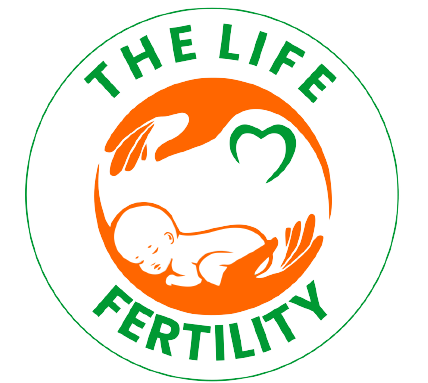Introduction: The Foundation of Male Fertility
For many couples, the journey to parenthood is a deeply personal and often challenging experience. While conversations around fertility have historically focused on women, the role of a man’s reproductive health is equally important.
In fact, male factors are a contributing cause in up to 50% of infertility cases. A man’s ability to conceive is heavily dependent on his semen quality and fertility, which are determined by the health of his sperm, specifically its count, movement, and shape. The good news is that, unlike some uncontrollable factors, a man can take significant control of his own male fertility journey.
By focusing on three key areas—lifestyle, nutrition, and environmental habits—you can dramatically improve your semen quality and fertility naturally. This article will serve as your guide, breaking down the essential steps you can take to lay a strong foundation for your reproductive health and increase your chances of conception.
Essential Key #1: Optimizing Lifestyle for Peak Reproductive Health
- Why Lifestyle Matters for Your Sperm
The process of creating new sperm, known as spermatogenesis, takes roughly 72 days from start to finish. This lengthy cycle means that the choices you make today will affect your semen quality months from now.
Therefore, consistent, healthy lifestyle habits are crucial for improving semen quality and fertility. When we talk about semen quality, we’re focusing on three primary metrics from a semen analysis: sperm count (the number of sperm in your ejaculate), motility (the ability of sperm to move and swim), and morphology (the shape and structure of the sperm). A low number or poor performance in any of these areas can be a cause of male infertility.
- The Role of Exercise and Weight in Semen Quality and Fertility
Regular physical activity is one of the most powerful tools for boosting male fertility. Engaging in moderate exercise, like jogging, cycling, or weight training, helps increase testosterone production and improves blood flow throughout the body, including to the reproductive organs.
This enhanced circulation ensures that your body has the resources it needs for robust sperm production. Conversely, a sedentary lifestyle and being overweight can negatively impact semen quality and fertility.
Excess body fat can disrupt hormonal balance by converting testosterone into estrogen, leading to a lower sperm count and reduced sperm function. Making an effort to reach and maintain a healthy body weight is a fundamental step to take if you want to get pregnant fast.
- A Healthy Environment: Protecting Your Reproductive System
One of the most common mistakes men make is exposing their reproductive organs to excessive heat. The testicles are located outside the body for a very specific reason: they need to be a few degrees cooler than your core body temperature to produce healthy sperm.
Overheating can compromise semen quality, leading to lower counts and poor motility. To protect your reproductive health, it’s a good idea to avoid hot tubs and saunas and to wear loose-fitting underwear.
While the effects are debated, limiting the amount of time you spend with a laptop directly on your lap is another simple habit to adopt to help protect your semen quality and fertility.
- Conquer Stress and Prioritize Sleep
Today’s fast-paced world is filled with stress, and it can take a serious toll on your body. Chronic stress can negatively impact semen quality by increasing the level of cortisol, the stress hormone, which can suppress testosterone production. Studies show a clear link between psychological stress and lower sperm count and reduced motility.
In addition, quality sleep is crucial for your hormonal balance. Your body performs many of its most vital restorative and regulatory functions during sleep. Aim for 7-9 hours of restful sleep per night to support your overall well-being and, in turn, your reproductive health. Making small, consistent changes in these areas is the best way to proactively boost male fertility.
Essential Key #2: Fueling Fertility with a Strategic Diet
- The Power of Nutrition for Semen Quality and Fertility
What you eat directly influences the health of your sperm. Think of your diet as providing the raw materials and protection for your cells. A nutrient-dense diet gives your body the necessary building blocks for healthy sperm and provides a crucial defense against oxidative stress.
This condition, caused by an imbalance of free radicals, can damage sperm DNA and compromise semen quality and fertility. By making smart food choices, you can improve your semen quality and fertility naturally.
- The Power of Antioxidants: Vitamins and Minerals
Certain vitamins for male fertility and minerals act as powerful antioxidants. Vitamin C, for example, is well-known for protecting sperm from oxidative damage, which is a key factor in poor semen quality. You can get this from citrus fruits, bell peppers, and broccoli. Zinc is another non-negotiable mineral, playing a central role in sperm production and testosterone metabolism.
It’s found in high concentrations in oysters, beef, and pumpkin seeds. Meanwhile, selenium is vital for sperm morphology and motility, with great sources including Brazil nuts, fish, and eggs. These nutrients work together to protect and improve the health of your sperm.
- The Importance of Healthy Fats
Not all fats are created equal. Omega-3 fatty acids, found in foods like walnuts, flaxseeds, and fatty fish (such as salmon), are essential for the structural integrity of sperm. Sperm cells have a high concentration of polyunsaturated fatty acids in their membranes, and these healthy fats are crucial for ensuring proper function and sperm motility.
Incorporating these foods into your daily diet can make a real difference in your reproductive health.
- The Role of Supplements
While a balanced diet is the best starting point, targeted supplements can also support your semen quality and fertility. Coenzyme Q10 (CoQ10) and L-Carnitine, for example, are antioxidants that help improve sperm motility and energy production. Similarly, a combination of Vitamin C and Vitamin E can help protect sperm from damage.
However, it’s important to remember that the quality and dosage of supplements can vary. Always consult with a healthcare professional before starting any new supplement regimen to ensure it’s safe and right for your specific needs and to discuss how to boost male fertility with a comprehensive approach.
- Foods and Habits to Avoid
Just as some foods boost semen quality, others can actively harm it. For optimal male fertility, it’s wise to limit or avoid processed meats (like hot dogs and bacon), which have been linked to negative effects on sperm count.
High-fat dairy products may also contain hormones that can disrupt your body’s natural hormonal balance and lead to lower sperm quality. Additionally, excessive soy consumption has been noted for its phytoestrogens, which can mimic the effects of estrogen and potentially interfere with sperm production.
Lastly, minimize your exposure to toxins like pesticides and BPA, which are endocrine disruptors that can mimic hormones and severely impact semen quality and fertility.
Essential Key #3: Breaking Harmful Habits and Avoiding Toxins
- The Impact of Smoking and Alcohol on Semen Quality
When trying to improve semen quality and fertility, one of the most impactful changes you can make is to cut out tobacco and limit alcohol. Smoking is directly linked to lower semen quality. The toxins in tobacco can decrease your sperm count and reduce sperm motility, while also increasing the number of abnormally shaped sperm.
These combined effects significantly hinder a man’s chances of conception. Similarly, excessive alcohol consumption can lower testosterone levels and cause direct damage to sperm-producing cells, thereby compromising a man’s overall male fertility.
- The Dangers of Recreational and Prescription Drugs
Certain medications and recreational drugs can have a serious, and sometimes long-lasting, effect on your reproductive health. Anabolic steroids, for instance, can shut down your body’s natural testosterone production, leading to a drastically reduced sperm count that may not fully recover even after stopping use.
Other substances, like marijuana and opioids, have also been shown to negatively affect semen quality. If you are taking any prescription medications and have concerns about their effect on your fertility, it is always best to consult with your doctor. Never stop taking a prescribed medication without their guidance.
- Protecting Yourself from Environmental Toxins
Our daily lives expose us to countless chemicals, but some are particularly damaging to semen quality and fertility. Certain pesticides and heavy metals, for example, are known to act as endocrine disruptors, mimicking or interfering with hormones and impairing sperm production.
While it may not be possible to avoid all exposure, you can take simple steps to minimize your risk. This includes washing produce thoroughly, using protective gear if your work brings you into contact with industrial chemicals, and opting for products that are free of harmful substances like BPA. Taking a proactive approach to avoiding these toxins is a crucial part of improving your semen quality and fertility.
What is considered a good sperm count?
According to the World Health Organization (WHO), a healthy sperm concentration is 15 million sperm per milliliter or more. However, a total sperm count of 39 million or more per ejaculation is considered a good range for overall fertility.
How does smoking affect male fertility?
Smoking is directly linked to lower semen quality. It can decrease sperm count, reduce motility, and increase the number of abnormally shaped sperm, all of which severely impact a man’s chances of conception. Quitting smoking is one of the most effective steps you can take to boost fertility.
Can exercise affect sperm quality?
Yes, moderate, regular exercise can significantly improve semen quality by boosting testosterone levels and reducing oxidative stress. However, excessive or intense exercise can have the opposite effect, so balance is key.
How does stress affect semen quality?
Chronic stress can negatively impact semen quality and fertility by increasing levels of the stress hormone cortisol, which can disrupt testosterone production and damage sperm DNA. Managing stress is a vital part of improving reproductive health.
What foods help improve semen quality and fertility?
Foods rich in antioxidants, zinc, selenium, Vitamin C, and Omega-3 fatty acids are key to improving sperm health. This includes leafy greens, citrus fruits, nuts, seeds, lean protein, and fatty fish.




